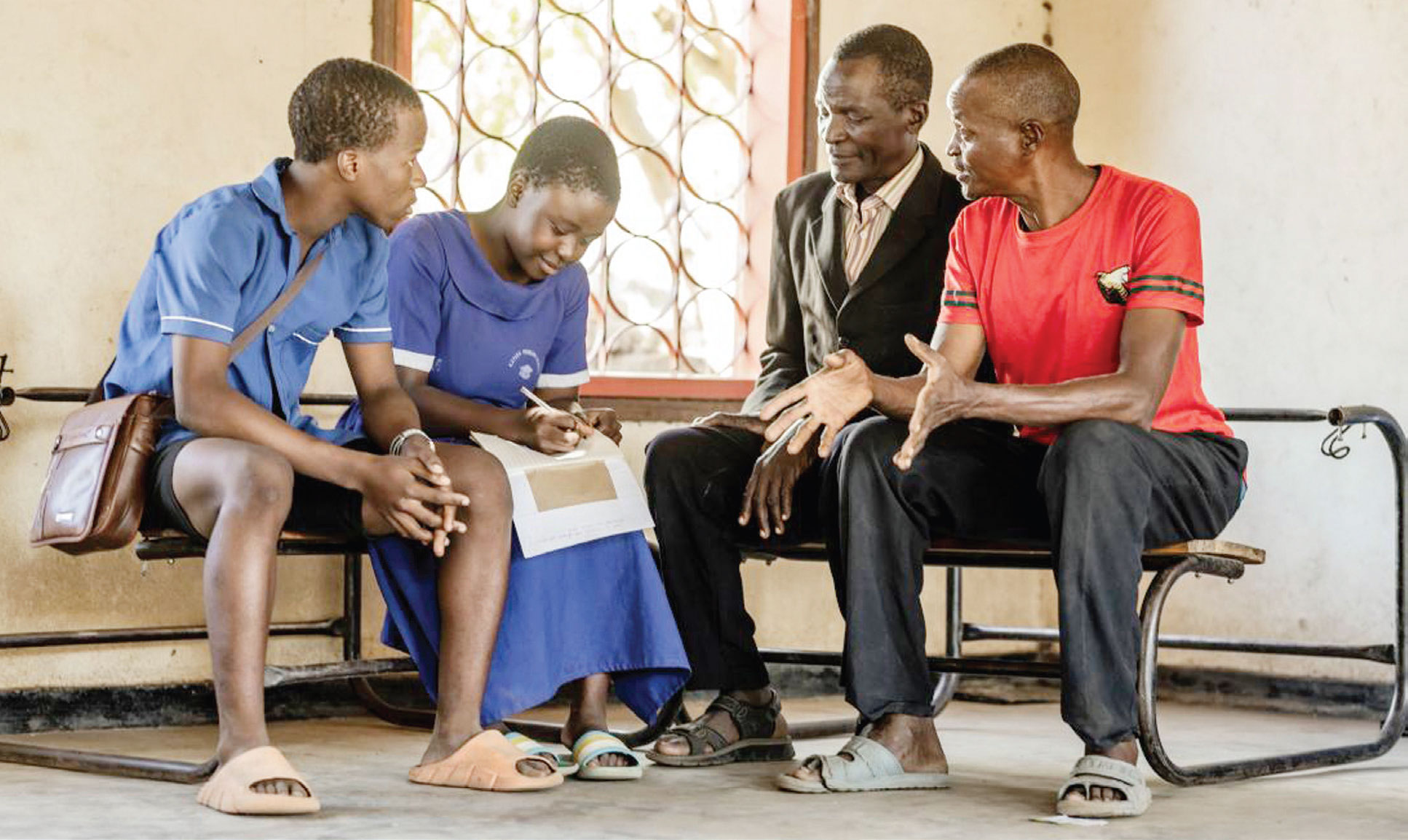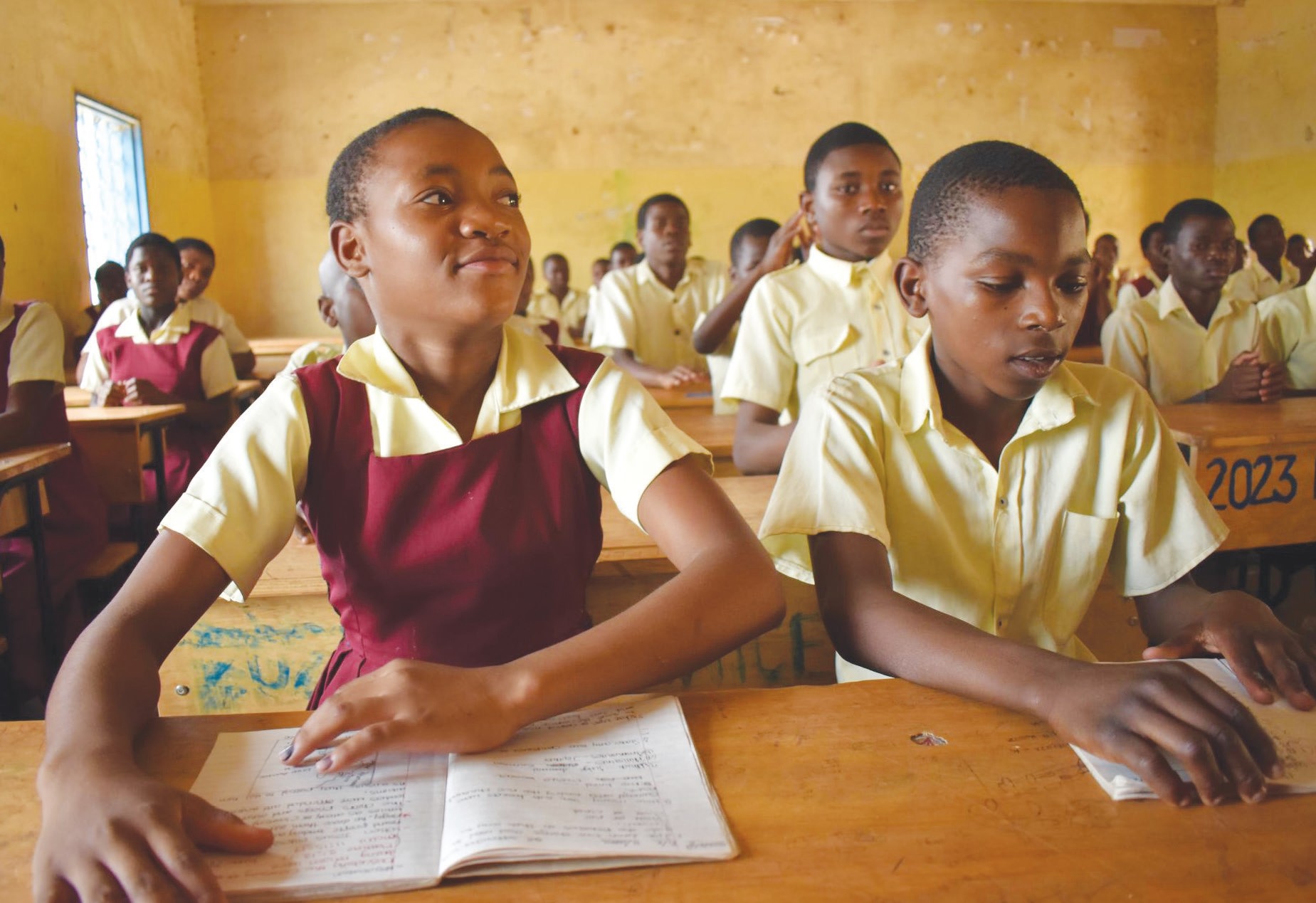Giving teachers headship skills
When Linley Lengani arrived at Tsogolo la Ana Primary School in Blantyre two weeks ago, she was excited to lead 15 teachers who serve about 25 learners each.
With just 300 learners, she visualised every child in the uncrowded classes, including children with special needs getting adequate attention. However, attendance was too low for her liking last week when schools restarted after a six-week disruption caused by the Covid-19 pandemic and a teachers’ strike for risk allowances.

“In Standard Eight, only three of 25 learners earmarked to sit Primary School Leaving Certificate of Education exams came to school on the first day. Only eight to 10 turned up the next three days. That’s unacceptable,” she says.
Absenteeism is a familiar problem in Malawi where laws make basic education, but prescribe no penalty for keeping children at home. However, Lengani wasted no time.
On Sunday, the headteacher, in consultation with teachers and parents, convened surrounding communities to brainstorm the challenge and share solutions to keep children in school.
“My immediate task is to tackle indiscipline, particularly absenteeism. The children will be the main losers if they continue to come to school as and when they want,” she states.
Local Government Accountability and Performance (Lgap) through Mulanje regional office continues to support the Ministry of Education through the Malawi Institute of Education (MIE) to build the capacity of primary school managers, notably headteachers and deputy headteachers in school leadership and management.
This far, the course has two parts: the first part is a two-weeks instructor-led training and the second part is implementation of action plans on education-related issues that each had identified with the support of the facilitators during the training. The implementation of the action plans takes about six months.
Lengani is one of 846 headteachers and deputies trained in school management and leadership by the Ministry of Education through the MIE with support from the Lgap.
The programme funded by UK Aid and USAid has supported training of 379 public primary school managers in Blantyre, 239 in Balaka and 228 in Mulanje to improve learning outcomes in their schools
Lengani is using the skills and values acquired in the National Professional Certification in School Headship and Management training to ensure teachers, learners and community members participate in decision-making and activities to create an enabling space for learning and teaching excellence.
“I learnt a lot of skills and values to help the school perform wonders for the benefit of children. With greater communication and team play, everyone plays a part,” she explains.
The training has equipped primary school managers with knowledge and skills which they did not have.
Moses Nkhoma, coordinator of leadership and management at MIE said: “In the country, headteachers are just appointed without any formal training. As such, they perform their duties without any proper plan.”
He expects this teamwork to help children learn effectively and perform better in class.
MIE has been training headteachers for decades, but district education officers lack the capacity to fund headteachers to come and acquire the headship skills.
A needs assessment by the Ministry of Education in partnership with Lgap confirmed similar training shortfalls in the promotion of headteachers. The Ministry of Education engaged curriculum developers at the MIE to produce a training manual for headteachers and school managers.
Says Lovemore Kuchonde, Lgap technical director for education: “The module requires every trainee to develop and implement action plans within a year.
“There is a strong link between school leadership and the performance of learners. Thanks to the strong partnership with the Ministry of Education and MIE, 90 percent of the teachers trained are implementing the action plans despite the pandemic and everyone—learners, teachers and parents or guardians—are winning.”
The Ministry of Education provides policy direction in the training and monitoring application of the new skills.
Alfonso, chief education manager in the ministry, says the formal training was “the first of its kind in two decades”.
He states: “While school curricula have changed over the years to focus on issues of teacher motivation; inclusive education, ICT; climate change, data collection, management and resource mobilisation and utilisation, leaders were not correspondingly equipped to ably handle these issues.
“As a result, their school level management was a bit of try and error.”
From school visits, Alfonso noted “a big improvement” in communication with teachers and community members as well as record management and utilisation.
He said: “I believe that as the academic calendar returns to normal and becomes more stable, we will observe more positive behavioural changes in the trained school leaders as they put the newly acquired knowledge, skills, values and attitudes to good use.”
The National Education Sector Investment Plan requires district education offices and the ministry’s directorates of basic education and teacher development to budget for it every year.
The ministry anticipates that efficient allocation of teachers and other resources in schools will improve the quality of education and reduce repetition and drop-out rates as teachers would teach to their maximum productivity while paying attention to the needs of all learners.
And the training was a timely boost for Lengani who had received no leadership training since she started teaching 22 years ago.
“In teaching, training opportunities are limited. I was appointed as a deputy headteacher at Khobwe in Blantyre without any orientation. Now, I have an idea how to manage people that look up to me for leadership and guidance,” she says.





